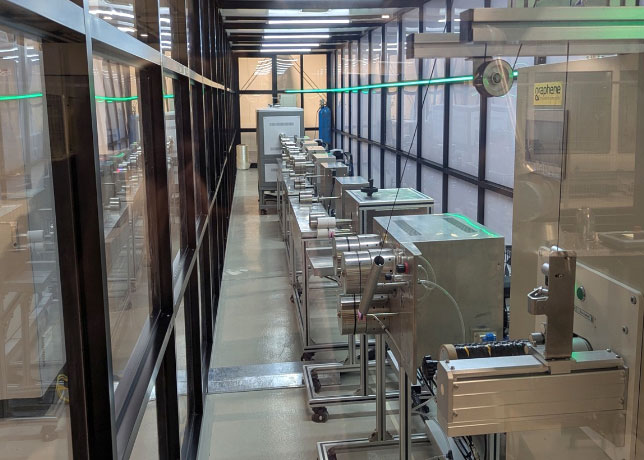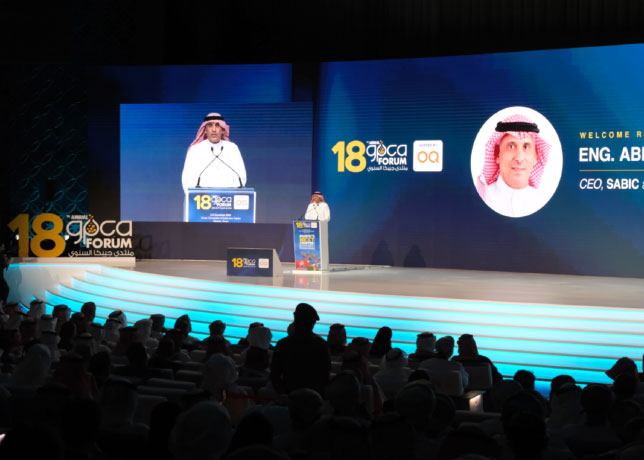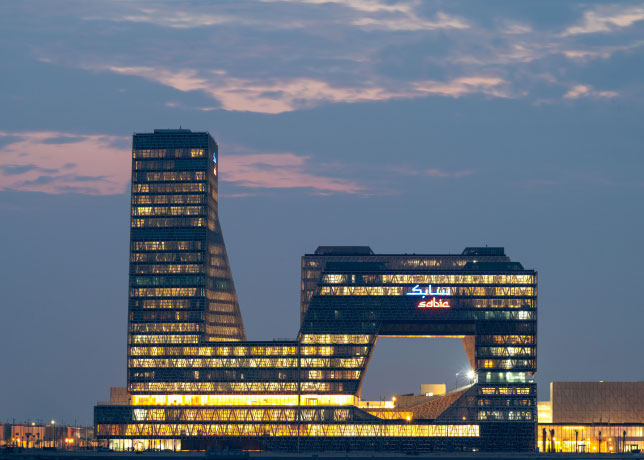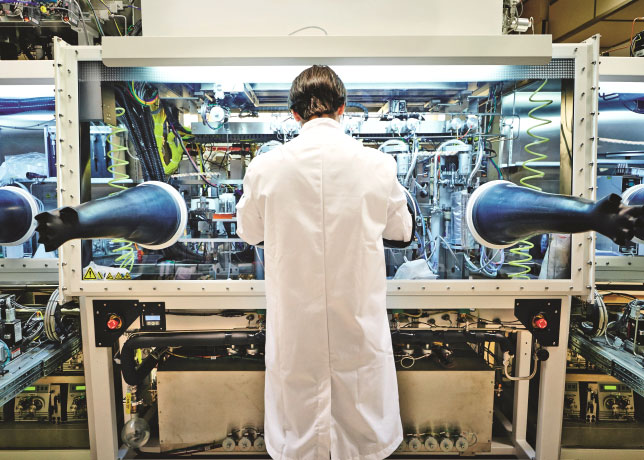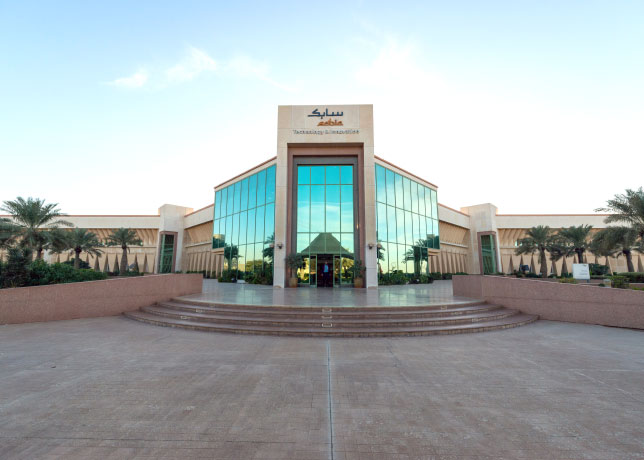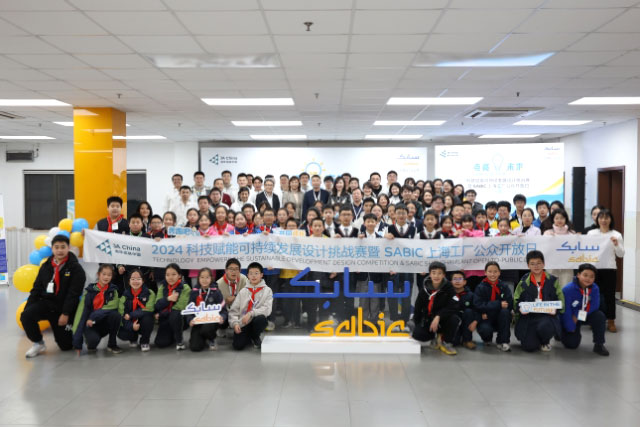
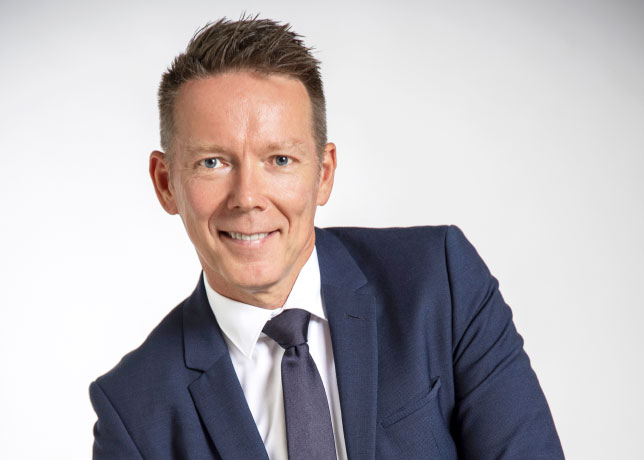 Christian Rugland
Christian Rugland
Bilfinger celebrated 50 years in the Middle East, highlighting growth in diverse sectors, commitment to sustainability, and a strong focus on decarbonisation and localised solutions for the region's energy markets, Christian Rugland tells OGN
Bilfinger Middle East, a leading industrial services partner, started its engineering business in 1974 with a focus on the water industry, but has since expanded its footprint across various sectors, including oil and gas, refining, petrochemicals, and utilities, and now boasts an extensive presence in the Middle East, Africa, and South Asia.
The company’s success can be attributed to its strategic vision of becoming a leader in efficiency and sustainability within the processing industry.
"By collaborating across the entire asset lifecycle and offering tailored solutions, Bilfinger has positioned itself as a trusted partner for clients on their decarbonization journeys. This approach has been reinforced by a restructuring of its operations, focusing on operational excellence and integrated solutions to meet the evolving needs of the market," Christian Rugland, President, Bilfinger Middle East, tells OGN energy magazine.
Bilfinger’s commitment to sustainability is evident in its ambitious net-zero approach, designed to help clients reach carbon neutrality through phased implementation strategies and innovative technologies.
Below are excerpts from the interview:
• The year 2024 marked 50 years of Bilfinger’s presence in the Middle East. What were some of the key milestones in the journey?
We celebrated the golden jubilee of Bilfinger Engineering Middle East's journey and are proud to look back at our achievements and are committed to moving forward to deliver on our commitments.
 |
Bilfinger methodology enables optimal plant turnarounds |
Over the past 50 years, we have expanded our services in this region to cover almost all process industries, while maintaining a focus on oil and gas, refining and petrochemicals, and utilities. We also aim to engage other energy-intensive industries such as cement, mining and metals, and pharmaceuticals through our consultancy and engineering resources.
Starting with a small team of engineers and designers, which grew to over 60 in the mid-term, we now have more than 1,500 full-time employees across 10 offices in the Middle East, Africa, and South Asia region, reflecting exponential growth in our business base. We have the capabilities and systems to deploy a 150-plus strong team of multi-disciplines on a single project.
We have a strategic focus on further increasing our participation in the Kingdom of Saudi Arabia engineering business and have recently acquired our partner’s share in our existing joint venture. We are one of the leading engineering contractors in the UAE, Bahrain, and Qatar, with participation in major projects and expanding our footprint in other Middle Eastern countries as well.
How has Bilfinger positioned itself as a leader in the processing industry, and what strategies have been key to your success in this sector?
With our vision to be number one in efficiency and sustainability for our customers, we systematically collaborate across the value chain throughout the entire lifecycle of their assets.
We are equipped to support our customers at every stage of their comprehensive decarbonisation journey, offering a scalable and modular mix of solutions that are tailored to the unique needs of each client, aligned with their strategy and objectives.
As part of our recent business process restructuring, we have launched an enhanced strategy underpinned by the strategic levers of operational excellence and positioning.
By customising the deployment of various enablers linked to these strategic levers, we position ourselves as a trusted, integrated solutions partner.
Bilfinger’s Net-zero Approach has won it praise. What is this approach and what impact can this have for customers in the process industry that want to achieve greater efficiency and sustainability?
Bilfinger’s net-zero approach is a comprehensive value proposition designed to help clients achieve their sustainability, decarbonisation, and carbon neutrality targets.
This approach involves a phased development of measures using net zero road mapping methodologies, such as the Marginal Abatement Cost Curve (MACC), coupled with extensive experience in process industries.
Ultimately, it also focuses on the implementation phase of these measures through short-, medium-, and long-term plans aimed at achieving net-zero operations within the targeted overall timeline. We collaborate with clients in the key areas of energy transition, asset operations management, and digitalisation, all of which are mission critical drivers in reaching net zero operations goals.
Can you elaborate on Bilfinger’s approach to working with clients from the inception stage of projects, and how does this collaborative process contribute to project success?
Bilfinger traces its origins back to 1880 and possesses vast experience, alongside a deep repository of best practices and lessons learned throughout the comprehensive lifespan of the asset value chain.
With nine global product centres offering integrated solutions for asset development, maintenance, and turnaround activities, Bilfinger ensures it works with clients as a strategic partner.
Walk us through Bilfinger's role in the various phases of development, right from inception through to design and build and commissioning of plants, and followed by operations and maintenance.
As trusted business partners, we collaborate with our clients through the entire project lifecycle, from the definition to the realisation phases, including:
• Identifying opportunities through relevant potential assessments.
• Conducting high-level feasibility and conceptual studies.
• Providing engineering services related to the basic and detailed phases of projects.
• Offering consultancy through PMC, EPCm, asset management by design, alongside HSE requirements.
• Managing construction, start-ups, and commissioning.
• Overseeing maintenance and modifications.
• Handling re-purposing and decommissioning.
Our business models are modularised, allowing us to customise solutions according to client needs and financial viability.
What are some of the initiatives Bilfinger is undertaking to promoting localisation within the region's energy market?
Bilfinger is meeting the targets set by the region's countries in line with localisation requirements.
Implemented initiatives include supporting local communities, employing domestic staff in leadership, professional, and support functions, providing educational support, promoting localisation, transferring Bilfinger's international experience to the region, and investing in the supply chain, among others.
Name some key operation and maintenance projects for power plants that Bilfinger has signed recently, and what are the major outcomes or benefits of these projects?
Some of our big maintenance power plants contracts include those for the Saudi Electricity Company, such as the Shoaiba Power Plant, Central Operating Area Power Plants, Qurrayah Combined Cycle Power Plant, and the Jeddah South Power Plant.
Through these contracts, we are contributing to their operational excellence targets while addressing the reliability, availability, and maintainability requirements of these power plants.
These are primarily long-term maintenance framework and service contracts, which will provide us with opportunities to identify other requirements related to modifications, engineering, and top-line consultancy offerings.
What are some of Bilfinger's key global experiences in industries like power, chemicals, and oil and gas, and how can these be leveraged to drive success and innovation in the GCC region?
It is worth mentioning that Bilfinger is working with the major global corporations, including ExxonMobil, Shell, Borealis, OMV, DOW, BP, EDF, TotalEnergies, Vattenfall, and YARA –to name a few. Our clients position Bilfinger as a global partner, thanks to our well-established business bases in the US, Europe, ME, Africa & South Asia, as well as our collaborations with these industry leaders. We are in close collaboration with them on the New Normal requirements, which span on a wide range of factors. We ensure they remain competitive in their respective business domains, focusing on core activities such as production and process technologies, while we support them in areas such as engineering, maintenance, and project development & execution requirements.
What are Bilfinger’s key strategic goals and future plans for growth, particularly in the GCC region, and considering the everchanging energy landscape and how does the company intend to address evolving industry challenges?
The Middle East is a key growth region for Bilfinger. We are witnessing exponential growth in areas such as digitalisation, asset operations management, and energy transition, which are the main drivers for achieving net-zero, in line with the Paris Agreement's 1.5 deg C target.
Bilfinger, as a corporation, is fully aware of the challenges and opportunities in the region and is making strategic investments in people and assets, including targeting mergers and acquisitions, to serve our clients with sustainable industrial services.
We are expanding our core businesses within the oil, gas, and petrochemical industries, focusing on engineering and maintenance. Additionally, we are broadening our service offerings within the power and utilities sector, capitalising on existing business with power and desalination plants for maintenance and modifications.
Bilfinger is also targeting geographical expansion across the Middle East and North Africa, while closely monitoring the competitive landscape in Central Asia. We remain flexible and open to collaborating with multiple technology partners to develop integrated solutions tailored to the market needs of the Middle East and GCC.
By Abdulaziz Khattak







































































